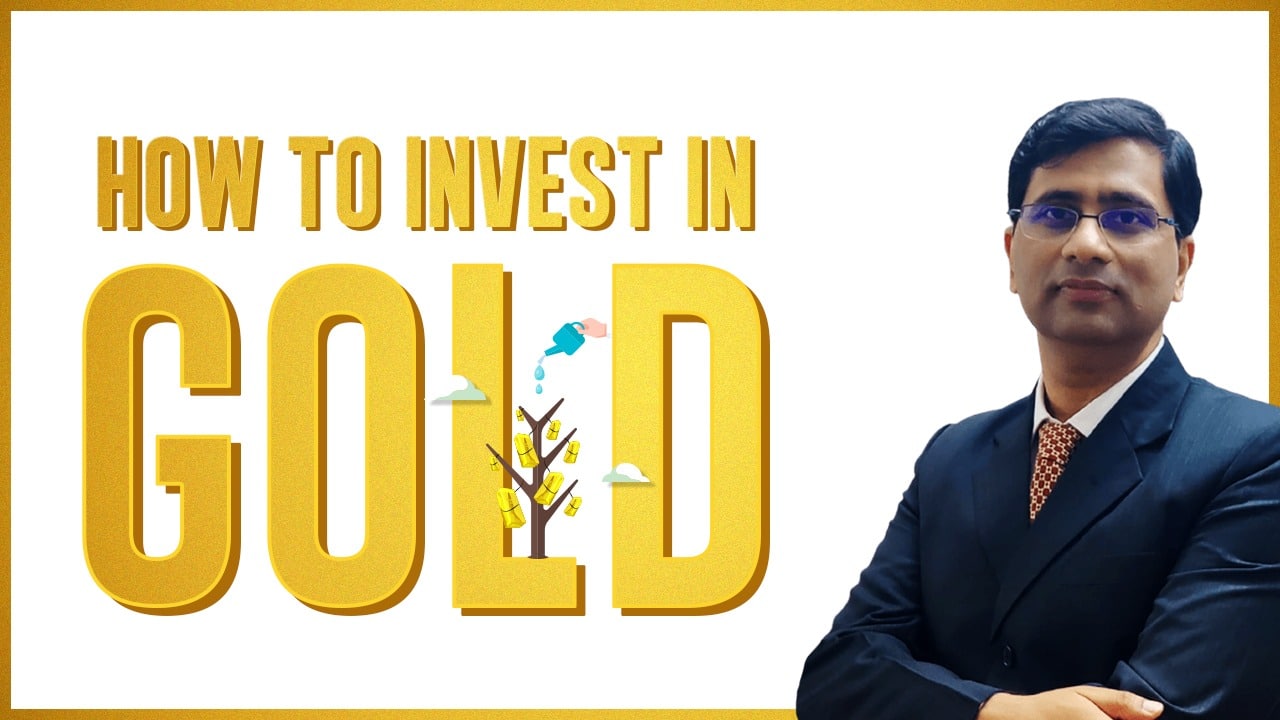
“We all wish to earn more when we put our hard-earned money in mutual funds”.
Or
“We invest in mutual funds and take a little risk to accumulate wealth.”
Well, it is not easy to pick “The Best” mutual fund out of some 2500 currently running schemes; you can still earn more from your present or future mutual fund investment.
Sounds Good! Sceptical? Let me share with you my actionable tips.
Tip No.1:
Invest in “Direct Plan” of Same Mutual Fund Instead of “Regular Plan” To Get More Mutual Fund Returns
Do you know “Direct Plans” delivers higher mutual fund returns?
You can reasonably expect to earn an additional return of 1 to 1.25% per annum. So just by investing in a “direct plan” of the same mutual fund, you can start earning more.
But what exactly is these two plans or modes of mutual fund investment, and what is the difference?
SEBI mandated in 2013 that all mutual fund schemes offer their investors two ways of investing in the same mutual fund scheme.
The reason for doing this is to benefit the investors. These two options are known as “Direct Plan” and “Regular Plan”.
In the direct plan of mutual fund investment, the fund house does not pay any brokerage or commission to the middleman who brings investment money for them.
The regular plan is the opposite of the direct plan. Here the middleman such as banks/ advisors/ brokers/ or technically speaking MFD (Mutual Fund Distributors) gets brokerage.
The fund house does not pay this commission from their pocket, but they deduct it from your money. Moreover, it is not a one-time brokerage. You keep paying this commission during the whole investment tenure.
Now you understand why the bank salesperson or your private advisor keep chasing you for the investment. They earn during the whole tenure of your investment.
But even if you know that direct plans will give better mutual fund returns, you might be thinking, “Oh, I can not take these hassles of investing directly”, or maybe having some other confusions.
So, let’s discuss and solve these myths or confusions one by one.

Common Myths About Indirect Plan
Myth No.1: You pay only 1 to 1.25% as brokerage, which is relatively low, so you do not mind paying.
Reality: You do not pay 1-1.25% of the profit earned on your investment. Instead, you spend it on your total investment amount plus any profit made. That too, not one time. You are paying for the whole investment period, which in the typical case is many years.
Myth No.2: You don’t mind paying a hidden commission because they help you pick a suitable mutual fund scheme.
Reality: We all know that transparency is the key in money matters. Further, this commission or brokerage of indirect schemes varies significantly from scheme to scheme.
Therefore, if you invest through mutual fund distributors, it is impossible to avoid a conflict of interest.
Most advisors of indirect schemes cannot resist self-interest. After all, their main job is to earn for their companies, save their target-based job or earn for themselves.
Myth No.3: You do not mind paying an indirect commission as they can keep you free from all the procedural hassles of mutual fund investing.
Reality: Do you know that directly investing in a mutual fund is super easy.
You can invest in Direct Plans through any of the following ways:
1. Mutual Fund Websites
2. Stock Exchange Websites
3. Sebi Registered online portals such as “Groww“, “ET-Money“, “Zerodha“, “Paytm Money” etc.
4. Online portals of “Registrar and Transfer Agents” such as “CAMS“, etc.
5. Mutual Fund Utilities
But one crucial question remains unanswered?
You agree that a direct plan gives better mutual fund returns, and with little effort, you can also invest directly. But who is going to tell the suitable schemes? Above all, you are not supposed to know the details of some odd 2500 schemes running at any moment.
So, is there any way out?
All right. Here comes tip no. 2 for the solution.
Tip No.2:
Take Service of “Investment Advisors” And Not “Mutual Fund Distributors” To Increase Your Mutual Fund Profits

What if I say that most likely your present advisor is a mutual fund distributor and not an investment advisor?
I must be kidding! Your first reaction. But sadly, this is the truth.
All the banks, most online portals, and even your advisor are mutual fund distributors. As per law, mutual fund distributors cannot give financial advice due to a conflict of interest. Now you understand why “direct plans” and “regular Plans” exist.
When you invest through a distributor, they get the distributor`s commission. This commission is not for giving you advice or helping you choose a suitable scheme. Instead, this commission is for their selling and distribution efforts.
It is straightforward to test whether your advisor is an investment advisor or a Mutual Fund Distributor.
As per SEBI, besides fulfilling other requirements, an investment advisor has to charge an upfront fee from the clients and not earn any direct or indirect commission from the mutual fund house.
So, anybody giving you free advice and putting your money in “Regular Schemes” is a MFD(Mutual Fund Distributor).
But our essential questions regarding the “scheme selection” and hassle-free investment remains unanswered in all these discussions.
Your investment advisor is the right person to suggest the correct scheme based on your age, risk-taking nature, risk-taking capability, financial goal, current income and duration of investment etc.
He will also help you put your money in the “Direct Schemes”.
To sum up in simple language, the “investment advisor” is like the doctor of your financial health who issues a prescription. The “mutual fund distributors” are like medicine shops. And “direct schemes” are like purchasing directly from the factory without any middleman.
I hope you like my tips to increase your mutual fund profits. But stay, there is still one more important tip to follow:
Tip No.3:
Implement The Right Investment Strategy Now

The money is yours, and your family’s financial future depends on your present investment decisions and the extra efforts you put.
Let me share the ingredients of the correct mutual fund investment strategy to maximize the return.However, before we go there, let’s look at some confusing and overwhelming facts and data about the mutual fund industry.
Yea! I know this is boring and you don’t want to know about it. I will keep it short, and this knowledge will help.
Presently there are around 45 Asset Management Companies (AMC`s) or Mutual Fund Houses. These companies manage around Rs. 38.45 lakh crores worth of investments.
Moreover, there are around 60,000 Mutual Fund Distributors you were mistakenly considering as advisors.
Also, around 2500 mutual fund schemes run at any given point in time. These 2500 schemes do not mean there are 2500 types of mutual funds. There are only five types of mutual fund schemes.
Ah, pretty simple! 1. Equity Schemes 2. Debt Schemes 3. Hybrid Schemes (Mixture of debt and equity schemes) 4. Solution Oriented schemes such as for retirement or Child Marriage 5. Other Schemes such as Index Funds, Exchange Traded Funds and Funds of Fund. So, the 5th category creates little confusion, but overall you feel O.K. Now it’s time to know a bit about the different types of sub-schemes in which we usually put our hard-earned money. There are 11 types of Equity Funds categories. Debt fund has 16 types. Hybrid schemes have gone further to confuse us with its 7 categories.
But solution-oriented schemes have only 2 types. Residual schemes, which come under other category has 3 types.
Thanks for your patience. The tedious part is over. Yet you won’t regret it, as it will immensely help you in your investment journey.
The right strategy will be first to hire a qualified financial advisor who charges an upfront fee. This advisor will understand and analyze your current financial health.
Initially, he will take an hour or two-hour session to understand you first, your goals, risk-taking nature and capacity, besides many other parameters. Based on this, he will help you select a suitable scheme for you.
It is like deciding the right dream car for you. But as you know, even the best of vehicles require periodic service to give the best performance. Likewise, your financial portfolio also needs regular review and fine-tuning. This financial advisor helps you reach your financial goals.
Do you know that you can even switch your present “regular plans” to “direct plans” without incurring any charge and save on your future returns.
Practically, we put more effort and time into selecting the proper laptops, specks, or mobile for ourselves than in investment decisions. It will help if you also remain in touch with your advisor. Ask him the questions? Have interactions. Review your financial health at least once every six months, jointly with your advisor.
You will see a marked increment in your mutual fund profits.
Conclusion:
I hope my actionable tips will help you earn more from your mutual fund investment.
I’m going to hand it over to you now.
Which of my actionable tips are you going to try first?
Are you going to switch your regular plans to direct ones?
Or maybe you want to find the right advisor first.
In either case, please let me know by leaving a comment below.
If you have any questions or doubts, click ” Contact Me “, and I’ll get back to you.





